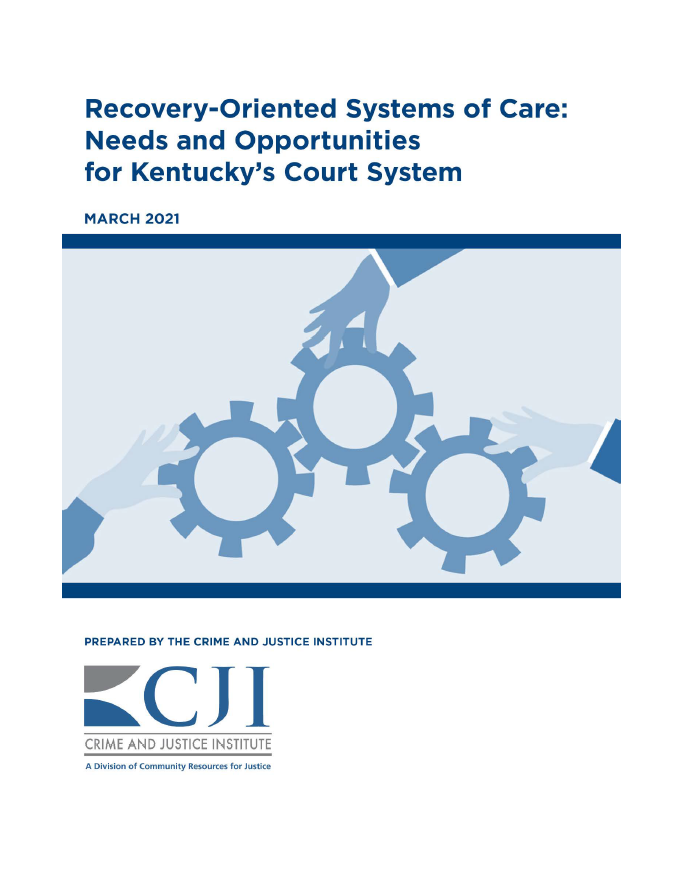
According to the latest Bureau of Justice Statistics (BJS) report, people in prison (14%) and jails (26%) have higher rates of serious mental illness than the general US adult population (5%). Likewise, BJS determined that approximately 60% of people sentenced to jails and prisons have substance abuse and dependence issues. The adult general population is far lower (~5%). Given these behavioral health statistics, the justice system is uniquely positioned to divert or direct people into needed treatment services.
To improve responses to people affected by substance use and co-occurring disorders, Kentucky’s Court of Justice (KCOJ) is exploring a philosophical shift from a sanctions-based, compliance-focused court model to a Recovery-Oriented System of Care (ROSC) model. A ROSC court model would streamline service connections, provide opportunities to divert individuals to treatment, and maximize the use of natural supports and settings by partnering with community providers.
CJI conducted a qualitative assessment of the opportunities and challenges that judges, other court personnel, prosecutors, and defense counsel experience when trying to connect people with services during the pretrial and post-sentence phases. The assessment focused on perceived challenges to access and availability of behavioral health services. CJI’s findings and recommendations are guiding the KCOJ, the first court system known to be spearheading such an effort, as it moves towards the development of a ROSC. CJI is continuing to work with KJOC with implementation of the report’s recommendations.